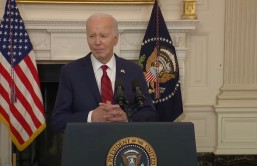Corporal punishment, also known as "physical discipline" can be defined as "the use of physical force causing pain, but not wounds, as a means of discipline," according to UNICEF's manual, "Educate, Don't Punish!."
Even though this practice has been followed for many years and is deeply rooted in the society, UNICEF stresses that this a wrong technique of chastising a kid. The organization is also aimed at raising awareness for the removal of corporal punishments and replacing it with non-violent discipline strategies.
Many parents resort to physical discipline as they believe that it is an appropriate way to correct wrong behavior in a child. However, UNICEF insists that corporal punishments are a bad idea and has been officially disregarded by American Academy of Pediatrics as a practice. The organization believes that the method is not only ineffective but puts kids at a risk for abuse.
Moreover, there are also proofs that corporal punishment can lead to aggressive behavior in children, not to mention the impact it can have on the child's mental health. According to a previous report, it was also pointed out that physical discipline can also make children harbor anti-social tendencies.
"Spanking is probably not going to correct the behavior in the short-term and it's very likely to lead to mental health difficulties, anxious kids, aggressive kids," said Andrew Grogan-Kaylor, University of Michigan School of Social Work.
It was also pointed out that corporal punishments can also cause low self-esteem in children and also encourage anger. Since "violence begets violence," using physical discipline will only give kids the idea that using violence is an acceptable solution to solving issues.
The way parents behave or act can have an impact on their child's behavior as well as cognitive abilities. The disciplinary choices made by parents reflect family status, stress, emotional and personal challenges etc, faced by the children and the parents. The choice of using physical disciplining techniques not only affect the child but also parents and society at a certain level.
For a comprehensive outlook on how corporal punishments affect affect the children, parents and society as a whole, check out "Educate, Don't Punish!" by UNICEF.








